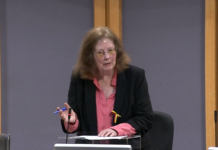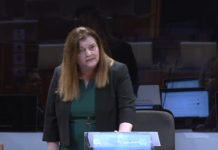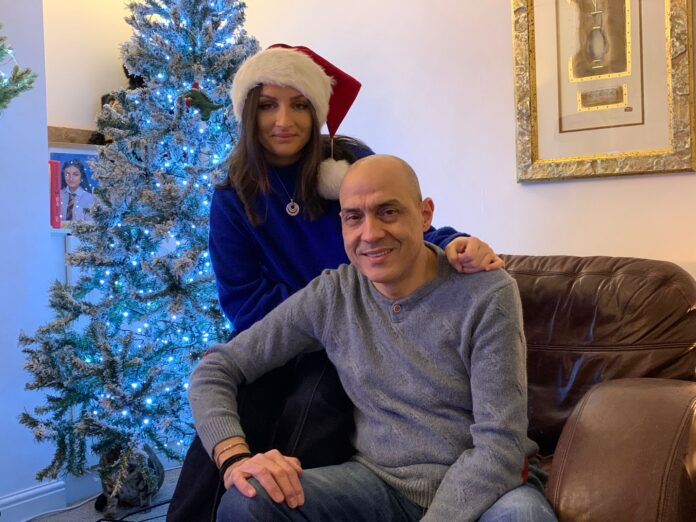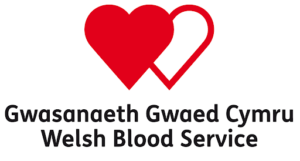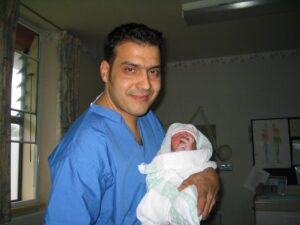This World Sickle Day (19 June), the Welsh Blood Service, in collaboration with the Hereditary Anaemia Service in Wales, is announcing a new blood test to help reduce blood transfusion side effects for patients with sickle cell disorder, thalassaemia, and other inherited anaemias in Wales.
Patients with these diseases rely on regular blood transfusions as part of their ongoing treatment plan. Due to the high volumes of transfusions these patients receive, the closer a blood donation matches a patient’s blood type, the less likely they will experience side effects.
Whilst certain types of blood, such as O, A, B and AB are well known, there are actually 45 recognised types, with some being extremely rare due to several factors, including ethnicity.
The innovative new test uses DNA analysis to help find the best compatible blood for patients with complex requirements. The change is set to be particularly beneficial for patients with black, Asian, mixed race or ethnic background.
Sickle cell disorder is an inherited blood disorder, which is more common in people of Black African and Caribbean heritage and can result in severe organ damage and intense pain if damaged red blood cells block vessels and restrict oxygen supply.
People with thalassaemia cannot produce enough haemoglobin, which is used by red blood cells to carry oxygen around the body, causing severe anaemia, which can be fatal if not treated. Thalassaemia is mainly seen in patients with an Asian, Middle Eastern, or Southern Mediterranean heritage.
Life-saving transfusions are commonly used to treat rare inherited blood disorders, but around a fifth of patients develop antibodies against certain blood groups following transfusion. Due to the difficulty in finding suitable matching blood, patients can then experience treatment delays and although rare, in some instances experience blood transfusion reactions.
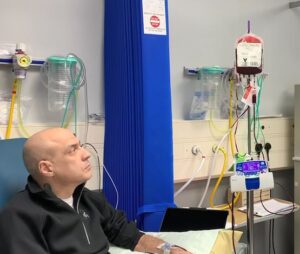
To help improve blood matching and reduce the risk of antibodies developing, the Welsh Blood Service and the Hereditary Anaemia Service in Wales are encouraging patients with sickle cell, thalassaemia or transfusion-dependent rare inherited anaemias to have this test taken alongside their routine hospital blood tests.
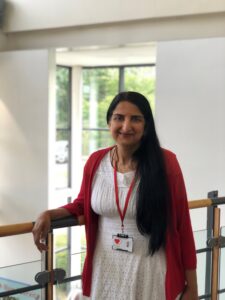
Dr Indu Thakur, Consultant Paediatric Haematologist at the Welsh Blood Service said “This is a world-leading service that’s recently been introduced in England and now here in Wales. It will help transform how we care for and improve outcomes for patients with sickle cell disorder and thalassaemia.
“This new service will mean patients with sickle cell disease and thalassaemia are now eligible for this new blood test. While blood matching for patients with inherited blood disorders is already carried out, this change will help us develop better blood matching, minimise the risk of transfusion reactions and reduce other serious complications.
“This is a big step forward in the evolution of the care for these patients. I encourage anyone eligible to speak to their clinical professionals about this test and to take advantage of this new service.”
Talking about the new service, thalassaemia patient, Giggs Kanias said “This new test could really help people with disorders like mine.”
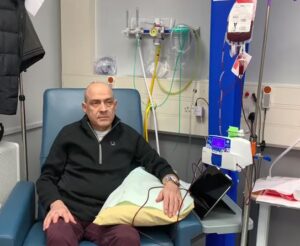
Giggs’ rare blood disorder requires blood transfusions every three week to keep him alive, he’s received over 1,000 blood transfusions to treat his condition.
Giggs continued “I am so thankful to the incredible people who give blood and to the hospital clinicians who continue to support me.
“When I’m in hospital, I stare at the bags of blood being transfused into me and always wonder who the person is that has helped me.
“I never underestimate the difference these people have made to my life and how grateful I am to each and every one of them. Without their generosity, I wouldn’t be here today, I wouldn’t be a dad, or have had the opportunity to see my daughter grow up.”
Dr Thakur concluded; “The population diversity in Wales is increasing and as it does, we expect a rise in patients with sickle cell disorder, thalassemia and other inherited anaemias. It is important therefore that we also diversify our panel of blood donors so that these patients can receive the best possible treatment and outcomes.
“I would urge anyone from a black, Asian, mixed minority or ethnic background to consider signing up to become a donor and helping more people in need, like Giggs.”
To read more about this service click here.
To learn more about donating blood, platelets, and bone marrow, or to book a lifesaving donation, visit www.welshblood.org.uk.
Help keep news FREE for our readers
Supporting your local community newspaper/online news outlet is crucial now more than ever. If you believe in independent journalism, then consider making a valuable contribution by making a one-time or monthly donation. We operate in rural areas where providing unbiased news can be challenging. Read More About Supporting The West Wales Chronicle












